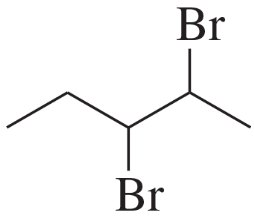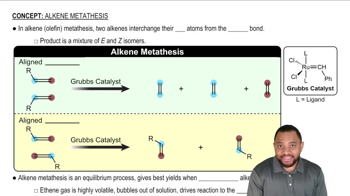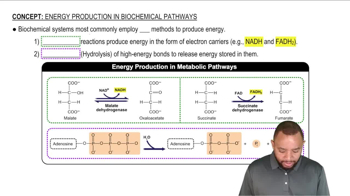Predict the product of the following haloalkane syntheses.
(a)

 Verified step by step guidance
Verified step by step guidance Verified video answer for a similar problem:
Verified video answer for a similar problem:



 2:27m
2:27mMaster General properties of halogenation. with a bite sized video explanation from Johnny
Start learning